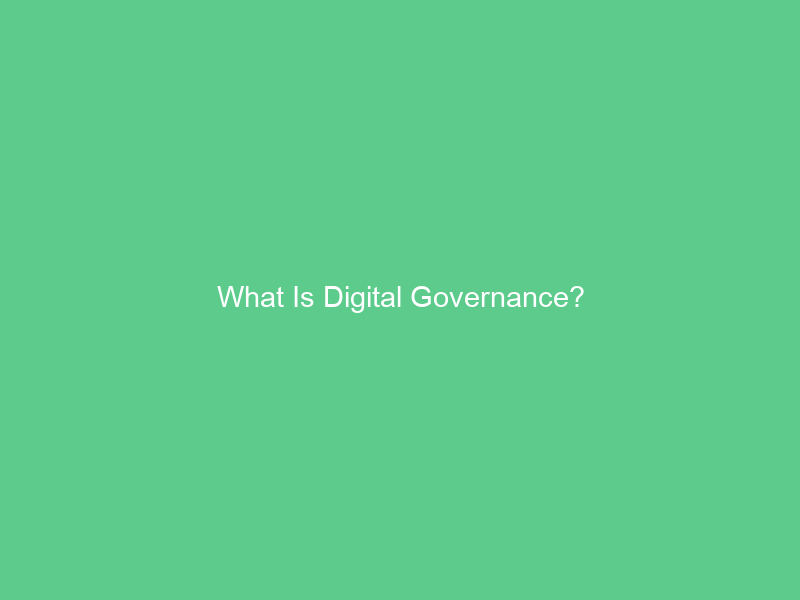Digital governance refers to the policies and structures implemented to govern how companies utilize their websites, social media accounts, data ownership, cybersecurity protocols and compliance standards for digital operations.
Governments require a global model for digital governance that protects the free and interoperable nature of the Internet, but this will likely involve balancing a range of concerns.
Transparency
Digital governance demands transparency for its success. This involves giving members of the public access to company’s information and decision-making processes; details should include who makes these decisions, as well as which tools are utilized by decision-makers – this allows people to make more informed choices regarding a business.
Transparency in digital governance includes offering an avenue for public feedback to companies. This can help address concerns and foster trust while simultaneously improving governance and security systems.
As global markets become ever-more complex, the United States must advance digital governance that protects human participants’ interests. To do this, they must build consensus among world market democracies and forge new partnerships with emerging countries; to do so they need to leverage free trade agreements for data protection regulations while strengthening multilateral cooperation through diplomatic lobbying and strategic alliances.
Security
Global digital trade increasingly relies on national-level governance and cybersecurity standards for its success. Therefore, the United States must pursue a bipartisan strategy that promotes its domestic framework in multilateral forums to protect consumer interests without burdening developing economies with too much regulation that might stifle technological innovation.
Effective digital governance strategies must encompass robust cyber security protocols and comprehensive risk management processes, in addition to addressing societal concerns like privacy, data protection and accessibility. Such practices ensure companies operate in a safe and secure environment while protecting their data from unauthoritied access or attack; this helps reduce risks to business development while increasing business resiliency while meeting local and international laws; it may also foster public trust while building customer confidence; this in turn can boost brand value and market share.
Reputation
Digital governance differs significantly from traditional business management in its focus. Instead, it specializes in the administration of technology issues which need specific structures and processes in place in order to address them consistently over time. Digital governance is especially pertinent to technologies, applications, and services which leverage internet standards and protocols.
One of the primary challenges of digital governance lies in defining responsibilities. Ambiguous responsibilities may create liability risks that threaten legal threats as well as losing a nonprofit’s reputation, while an undefined digital policy could limit growth and innovation.
Mission-driven boards must understand and adhere to the basic best practices for digital governance. BoardEffect, a Diligent Brand, offers a complete digital governance solution to assist your board in meeting its obligations. Request a demo today from one of our experts; contact us if any queries about our software arise; click here for more info & click here for demo request form
Compliance
As the internet becomes a pillar of infrastructure, many emerging digital technologies require governance structures to ensure their safety and benefit to people worldwide. Digital governance resembles public health in that these issues affect multiple users at once.
Establishing ownership and accountability are the cornerstones of an effective governance framework. Someone should be assigned to oversee and delegate policy decisions while being ultimately accountable for upholding compliance with policies; additionally, this person should have authority to take disciplinary measures against violators.
Boards should implement cybersecurity measures by using their board management system as the platform for all collaboration and communication, not via emails or file-sharing applications that could potentially be compromised. Furthermore, education of board and staff on cybersecurity matters is crucial to making sure everyone knows about keeping devices updated with latest software versions, avoiding suspicious links/attachments, and using secure apps.

